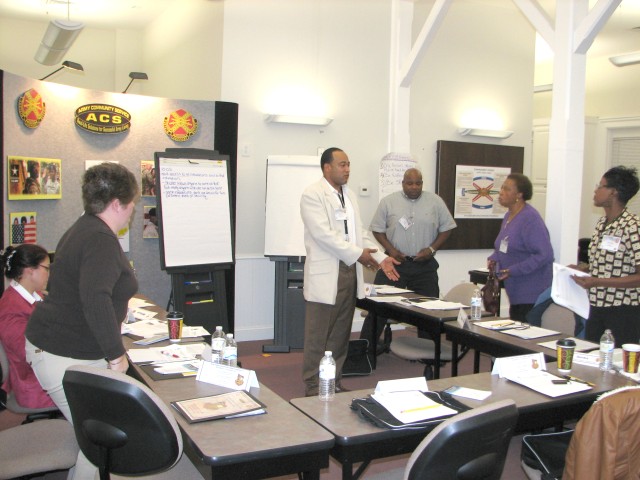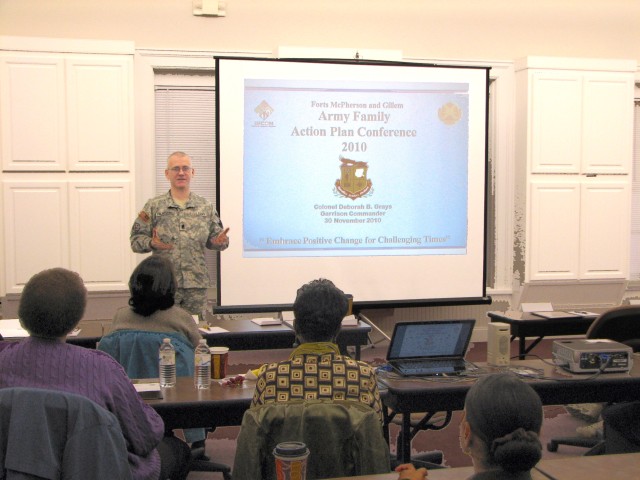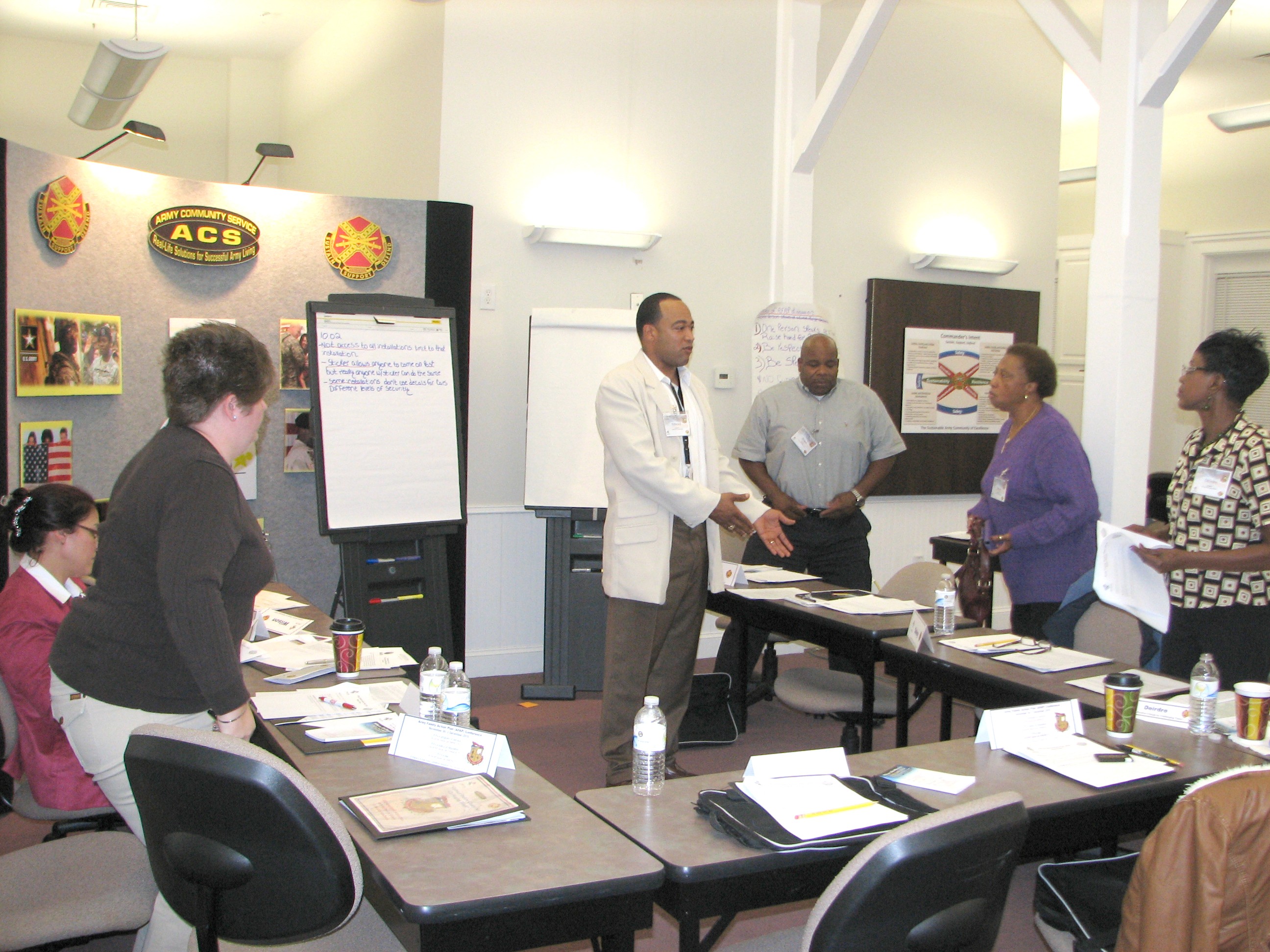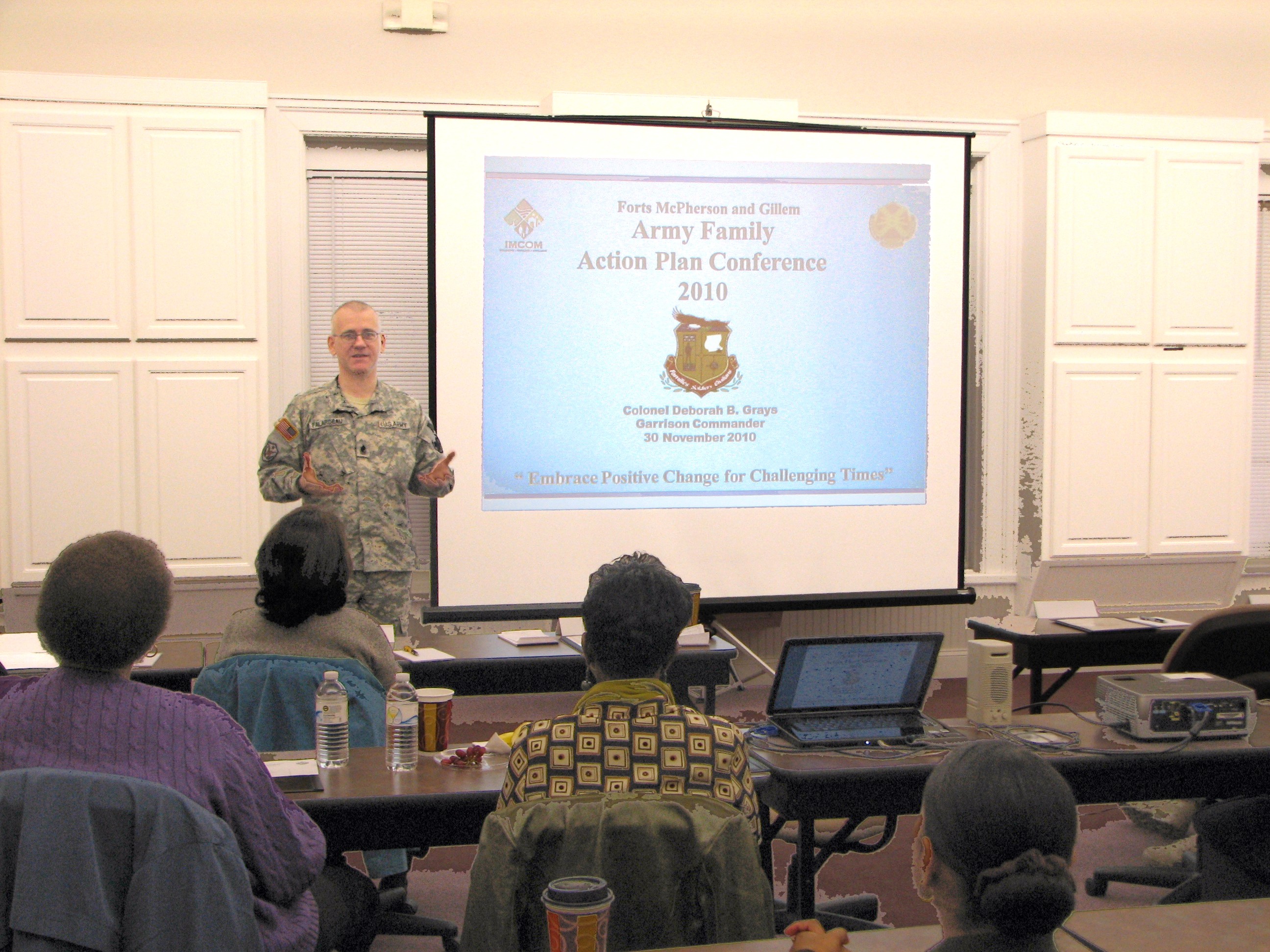Soldiers, family members, retirees and civilian employees dropped their titles and ranks to become agents of change during the Army Family Action Plan (AFAP) conference on Fort McPherson Nov. 30 through Dec. 2.
AFAP, now in its 27th year, is a community forum where members of the Army family gather to discuss, and ultimately make, recommendations to senior leaders on ways the Army can improve quality of life servicewide.
"This is by far one of the most important things the Army does," said Col. Deborah Grays, U.S. Army Garrison (USAG) Fort McPherson commander. "This is the channel to get leadership's attention."
It is a channel that has had much success, Grays said, which has kept the program alive for more than a quarter century.
According to official AFAP statistics, since its inception, AFAP has raised 667 issues, resulting in 123 legislative changes, 172 Department of Defense or Department of the Army changes and 192 improvements to existing programs.
"What you do (here) matters," Grays said. "AFAP only exists because we make a difference."
Daisy Curry, Army Community Service (ACS) volunteer, said she has been a delegate for the past two years and has been involved in making a positive change.
One issue she saw change after going through the AFAP process was the removal of the need for parents to re-enroll their children in Child, Youth and School Services following a permanent change of station (PCS) move.
Now, information follows the family, preventing redundancy in the system. Grays said she was personally affected by a change brought about through AFAP.
Her son benefitted from the AFAP resolution that keeps servicemembers from PCSing during their child's senior year of high school.
Over the course of AFAP, Cynthia Giesecke, AFAP program coordinator, ACS, said delegates will raise two or three issues to be sent to higher command.
These issues will be reviewed by subject matter experts to make sure they are backed up with facts and additional statements before being sent to U.S. Army Forces Command (FORSCOM) in January.
FORSCOM will hold its own AFAP to address these issues in March, Giesecke added. Giesecke also said other issues, especially those that deal with local programs, will be addressed and presented to Grays, who promised to fulfill her commitment to families on post and continue to make improvements despite base closures in nine months.
Even though Fort McPherson and Fort Gillem are currently scheduled to close, Grays still stressed the importance of participation, as issues brought up can have an impact on future duty stations.
Giesecke echoed those sentiments, adding issues raised will have impact on lives years into the future. The Soldiers of tomorrow are one group Curry said she will be considering.
The mother of Sgt. Maj. Scarlette Williams, FORSCOM G-1 sergeant major, Curry said it is important to consider the next generation who will follow her daughter's footsteps, and to do what she can to make their quality of life better.
Curry added she will also be looking at issues affecting Soldiers and families today, especially in light of news that suicide rates were up across the Army.
"I didn't realize suicide was such a big issue," she said. "As members of the military family and community, it's our job to help improve things." Grays also said suicide was a focal point, and that AFAP was one way to attack the issue and make a difference in - and possibly save - someone's life.
"We're one Army, one team, one fight," she said. "What you do does matter."




Social Sharing